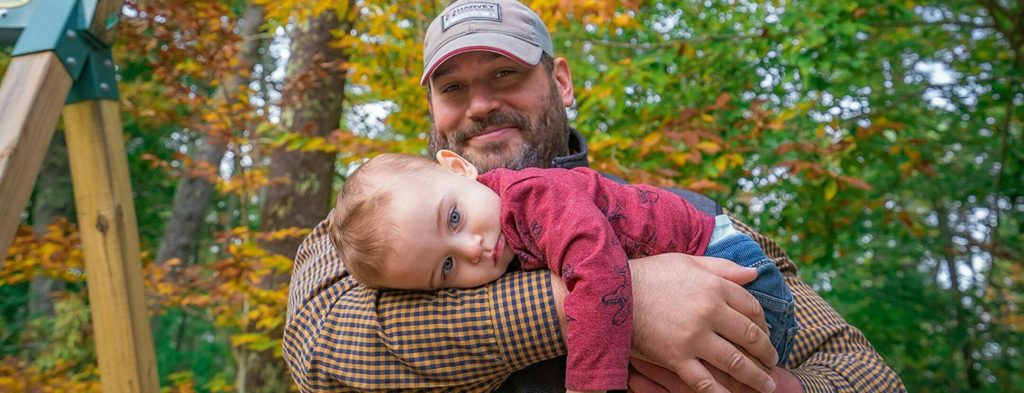Gio grips the sides of the wagon with delicate fingers. At one year old, he looks out with innocent eyes, absorbing the details of the world around him. Internally, an invisible challenge is developing beyond his control, and yet he sits supported both by the wagon carrying him and by the love of his family. Gio’s brother, Jameson, smiles at him from a few feet away. The two boys’ loving parents, James and Stephanie, pull them forward across a grassy clearing in the woods beside their home in the scenic coastal town of Plymouth, MA.
The family is on a simple mission: to feed their pigs, Harold and Shirley, comically named to honor Stephanie’s grandfather and James’ grandmother. As the boys feed the pigs carrot sticks not much larger than their own fingers, they partake in an act of service—a small taste of the kind of care and devotion their parents engage in, seemingly every moment of every day.
“I’ve always been in control of my entire life. That’s been my thing. But I literally don’t have control over anything anymore.” – Stephanie, Gio’s mother
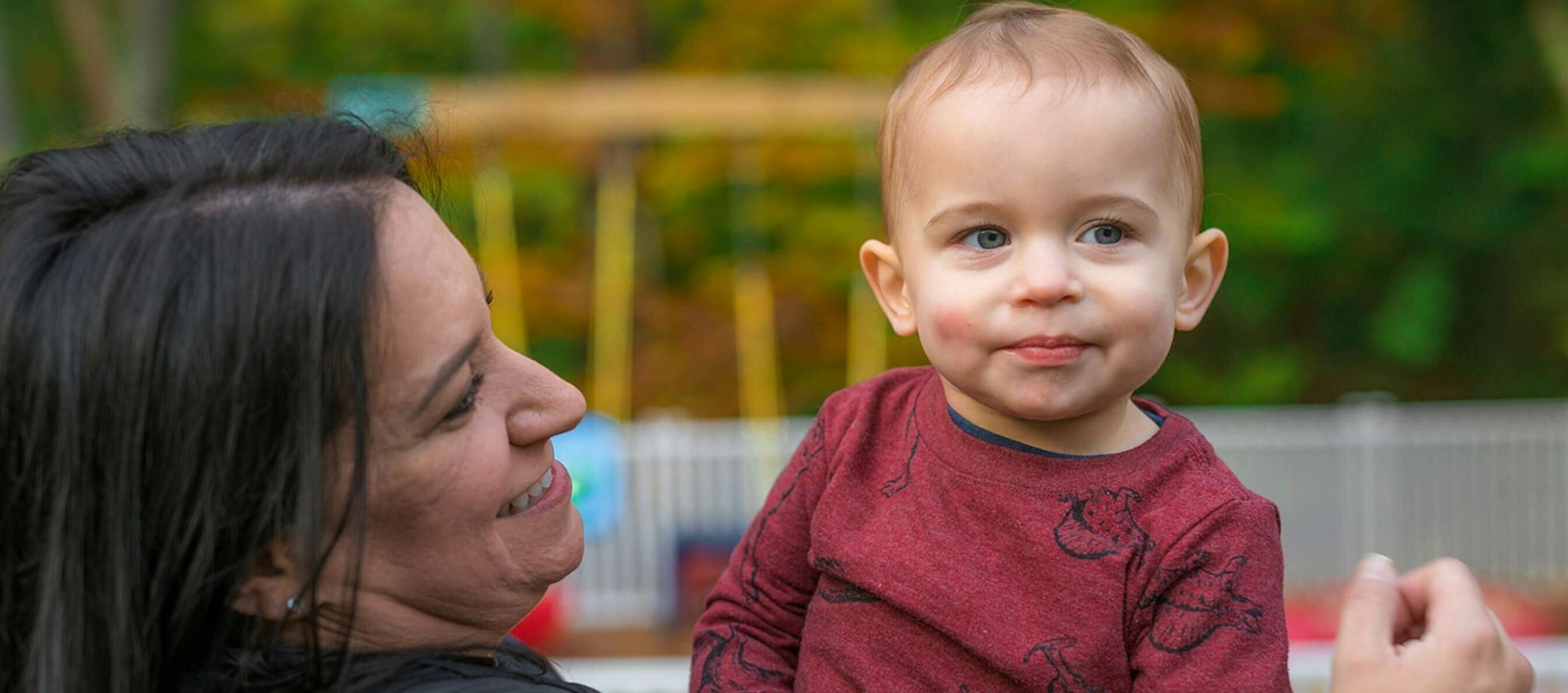
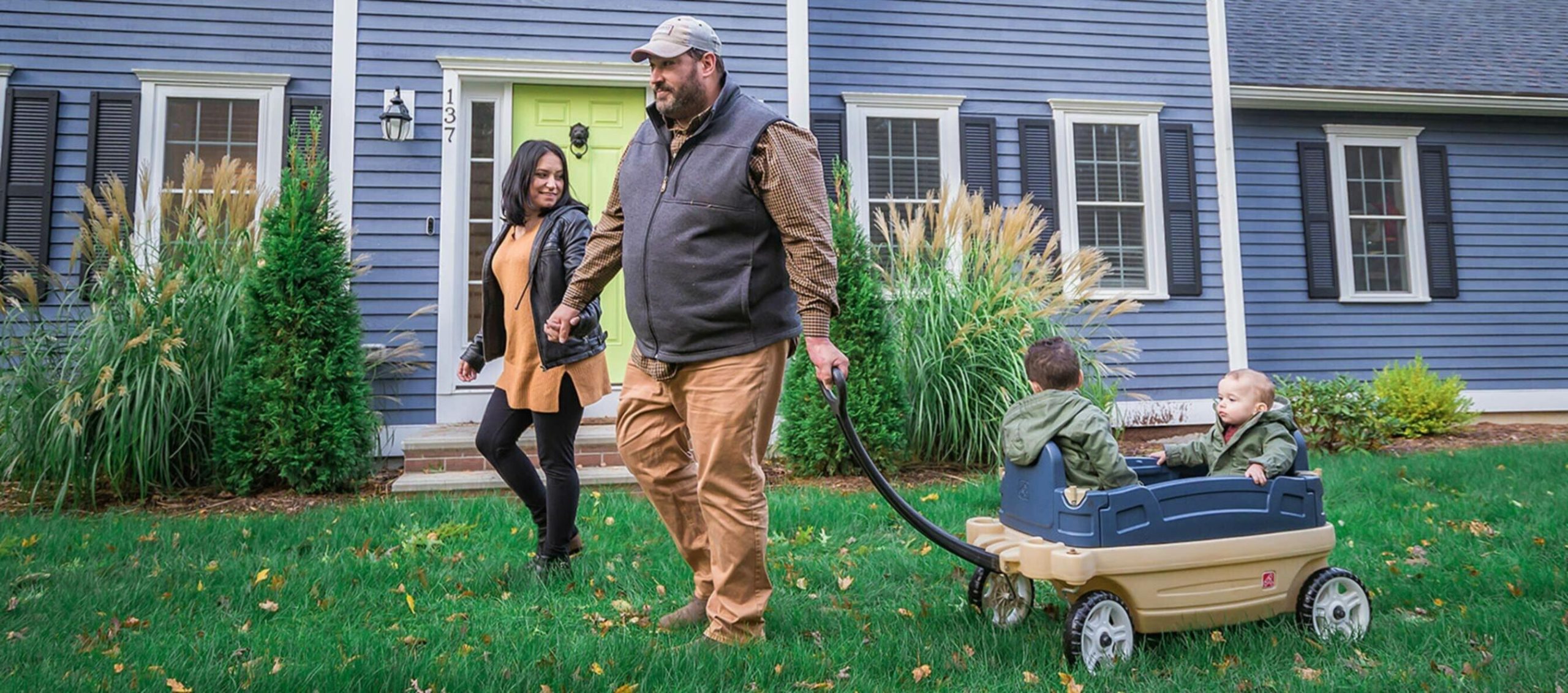
When James met Stephanie, he was impressed that she raised a hog in her home. “I just thought that was pretty cool,” James acknowledges, reminded of his own childhood which included growing up with pigs. James and Stephanie were in their mid-to-late 30s and ready to start a family when they found each other online. Both had developed thriving careers utilizing their creative prowess: Stephanie as a designer of live events and tradeshows, and James as an operations manager, implementing designs for houses on Cape Cod. Stephanie had traveled the world and felt that having children was a big part of what she was missing. Single for years, James delighted in playing music before setting out to find someone his age who still wanted to have kids. Within months of meeting, they became pregnant with Jameson, and a year-and-a-half later they had Gio.
“The second I became a mom, my goals shifted and my perspective on life changed a lot. I put my own needs aside to do what I needed to do for my littles to have the life they deserve. These two are my reasons and I am so lucky to be their mom.”
“Jameson and Gio, they’re two loving, smiling, always laughing, happy kids,” James states with gratitude. Yet both children and their parents face some incredible difficulties. While pregnant with Jameson, Stephanie experienced Intrahepatic cholestasis of pregnancy (ICP), a serious liver condition, and was induced at 37 weeks. Jamison miraculously survived his complicated birth but developed a bad case of acid reflux and had trouble feeding. He was later diagnosed with autism, though despite these challenges, remains an engaged and energetic child. He loves to assemble puzzles and solve problems, making sure to show his accomplishments to his parents. In moments of heightened excitement and celebration, he often acts out the sounds and behaviors of his favorite animals.
Giovanni, affectionately called Gio by those who know him, moves his little body across the living room floor with determined momentum, always seeking the eyes of a family member or visitor, undeterred by his frequent slips and bumps. A month after his birth, Gio drastically dropped in weight and was hardly eating at all. He was brought to the hospital, and his medical team performed all kinds of genetic and metabolic tests. Doctors then determined what James and Stephanie were hoping against: Gio was diagnosed with Duchenne muscular dystrophy (DMD), a genetic disorder in which muscles progressively degenerate and weaken. Beginning as early as the first couple of years, Duchenne can cause difficulty running and walking, eventually affecting the heart and respiratory muscles. “I explain it as a muscle wasting disease,” says Stephanie. “By the time he’s in his teens, he’ll likely be in a wheelchair. Depending on what treatment he is able to get, Duchenne will shorten his lifespan.”
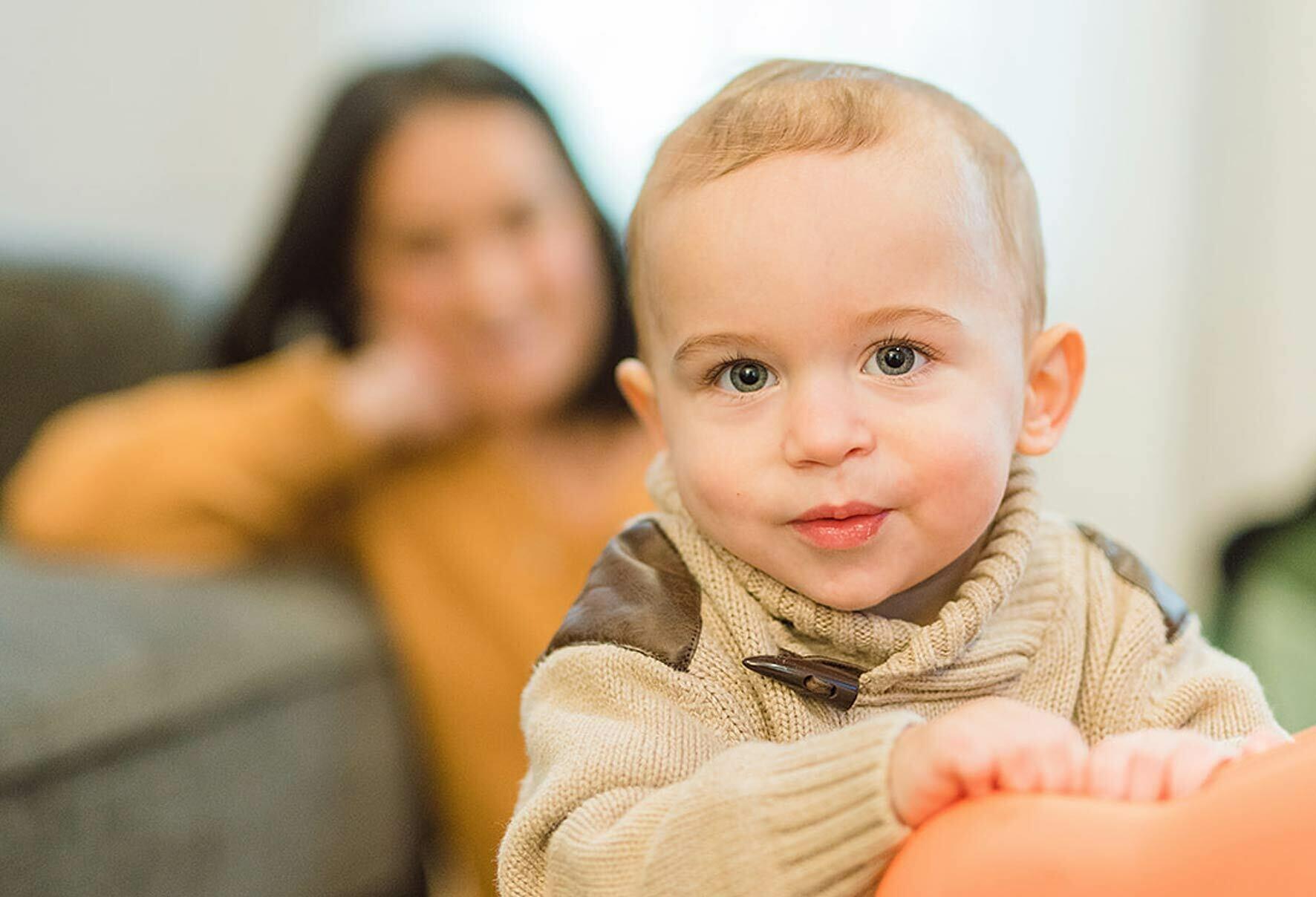
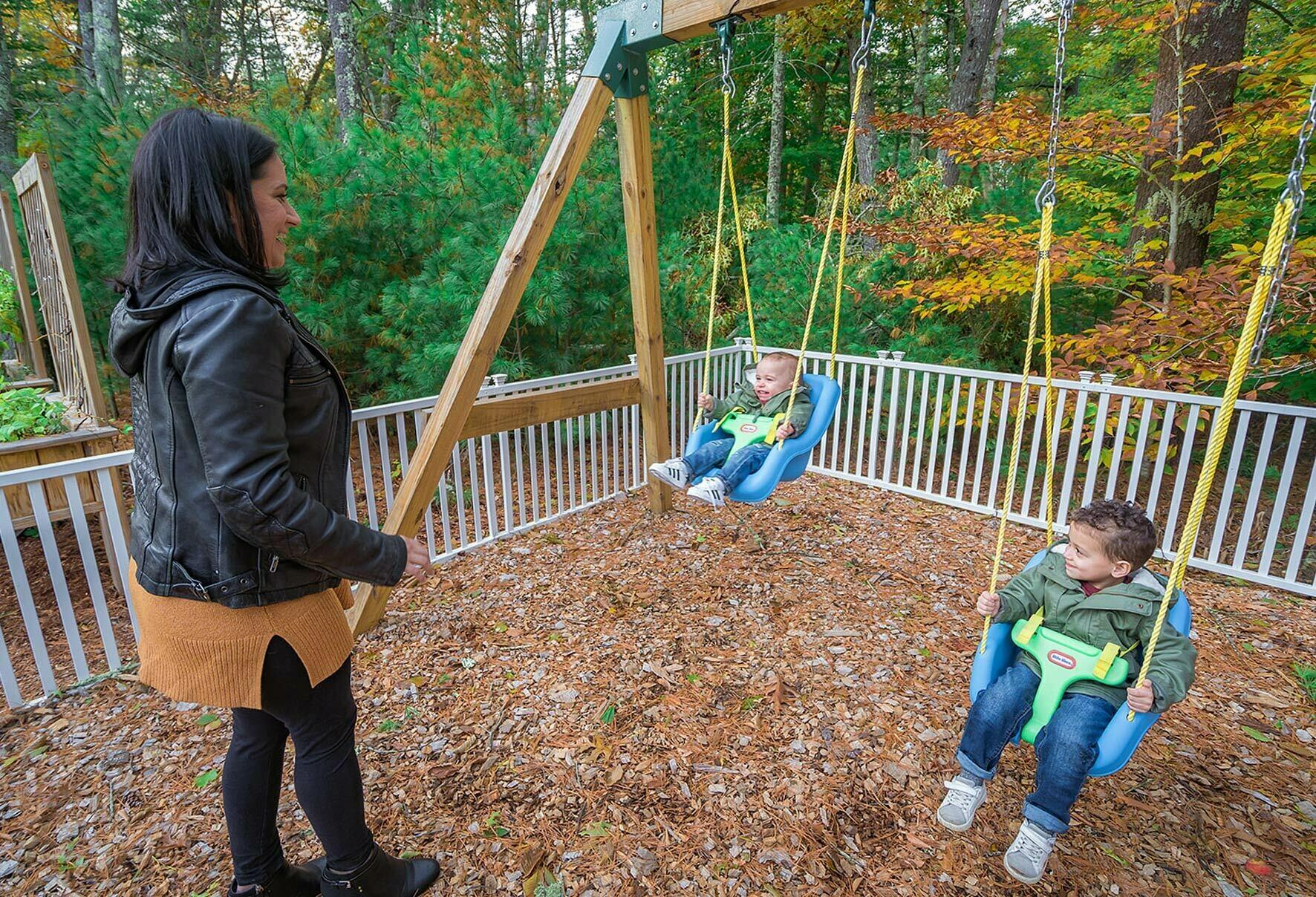
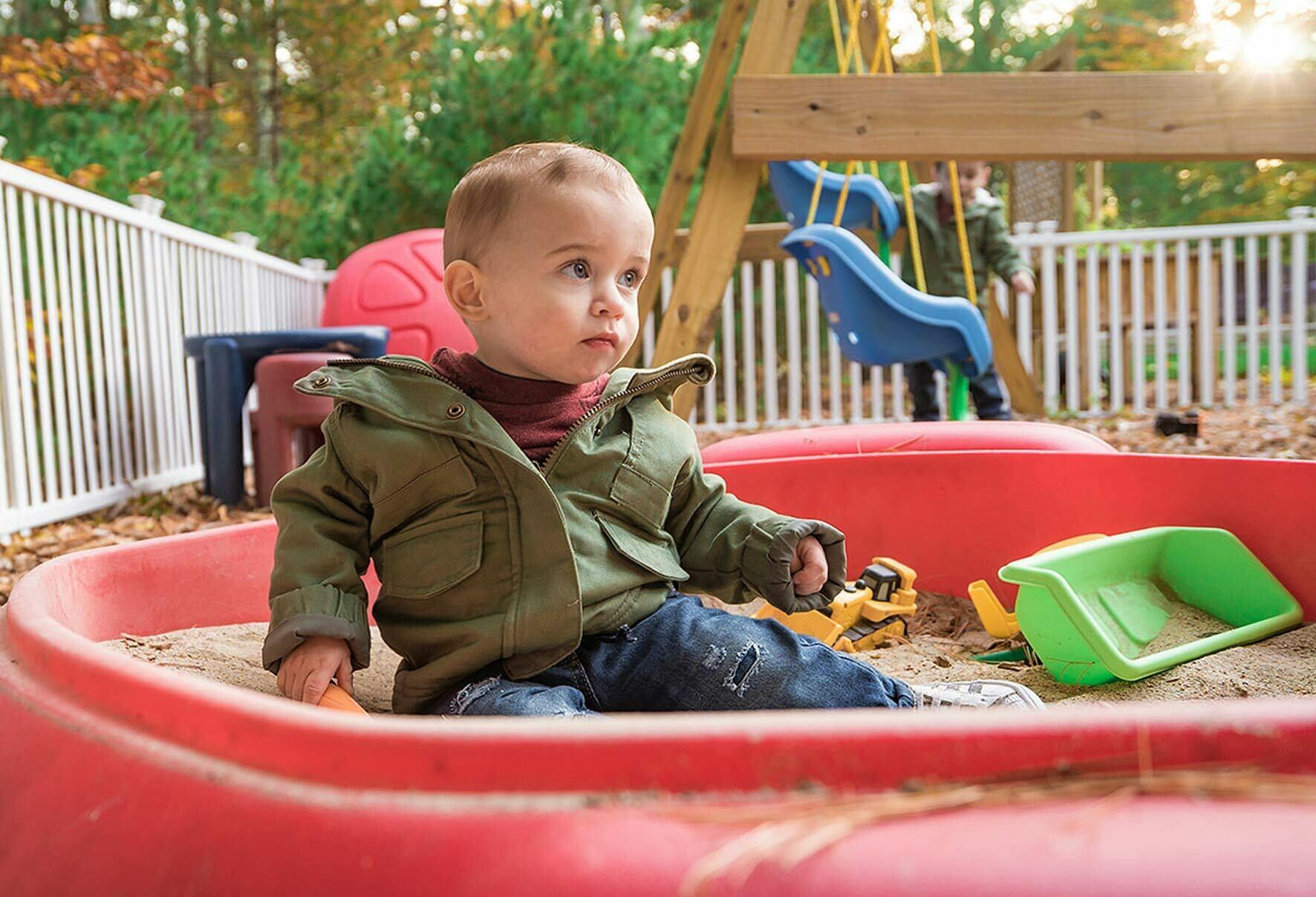
“There’s been so much grief over the past year,” Stephanie reveals with sadness, the news of the difficulties ahead still fresh in her heart. “What I expected our child’s life to be, and what it’s going to be, has been difficult. Everyone told me he was going to be okay, and we wouldn’t see the symptoms until he was older. But I’ve seen it almost every day. It’s been hard and it’s going to get worse.” Gio’s condition is progressing faster than most kids’ with Duchenne. His arms give out when he crawls. At 16 months, he just started to stand, which is an accomplishment considering the degeneration he battles. But he falls frequently, collapsing in fatigue. “His body just gives up on him. That’s the hard part because I don’t know if he is going to be able to walk, especially with the progression.”
James reflects that his and Stephanie’s first reaction was “becoming mad at the world… Why is this happening to us?” But they refused to succumb to a victim mentality. As James asserts, “We will not let the disease control us, we’re going to control the disease.”
“Jameson and Gio, they’re two loving, smiling, always laughing, happy kids.” – James, Gio’s father
Stephanie kicked into gear, researching everything she could about Duchenne online and attending conferences. She looked up relevant clinical trials to see if a new technology would help her son. She hoped to get Gio treated in a trial with microdystrophin, a gene therapy that induces production of the dystrophin protein, reducing muscle damage. Duchenne is characterized by mutations in the dystrophin gene, eliminating the protein critical to stability and function of muscle fibers. Gio was diagnosed at a remarkably young age, which typically bodes well for inclusion in trials. Unfortunately, the specific exons that he is missing have not yet been put to clinical research. Gio has a very long deletion, from exon 8-44. Additionally, he has a POLG gene mutation that causes mitochondrial issues and muscle deterioration. Gio’s muscles have started to turn gray in places, and are already showing clear signs of deterioration. Time is moving fast for him.
Despite the difficulty in obtaining effective treatment for Gio’s DMD and mitochondrial disease, James and Stephanie continue to prepare the best they can. Their successful careers enable them to plan for monumental expenses, such as an accessible van and remodeling the house to accommodate Gio’s needs. But the situation puts added pressure on maintaining their income and insurance by performing well at work, when they already deal with so much stress. Stephanie currently brings the boys to five or six appointments every week, leaving little time for work. After an expectedly exhausting day, the couple often choose whether they want to zone out with Netflix or work late on their computer.
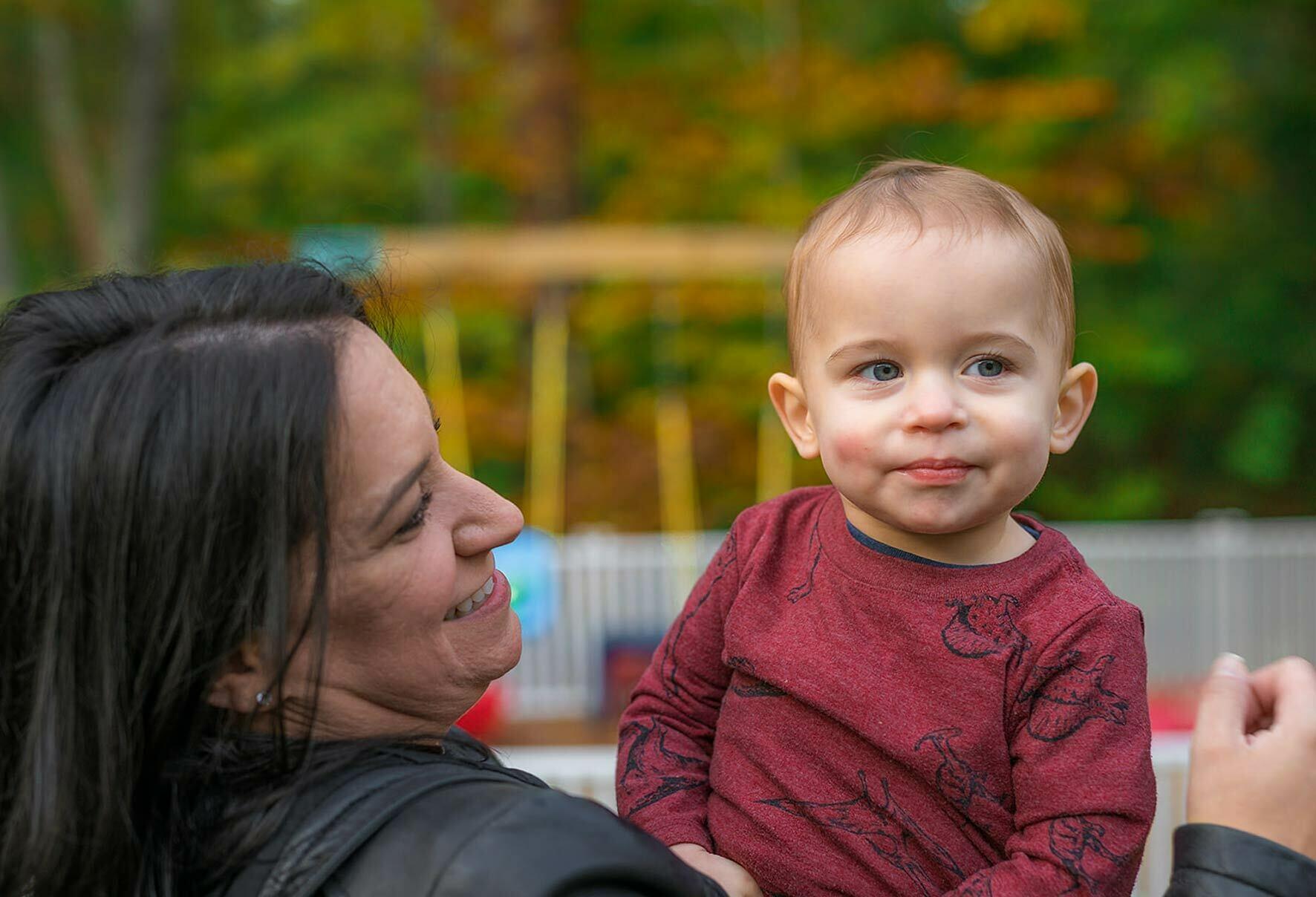
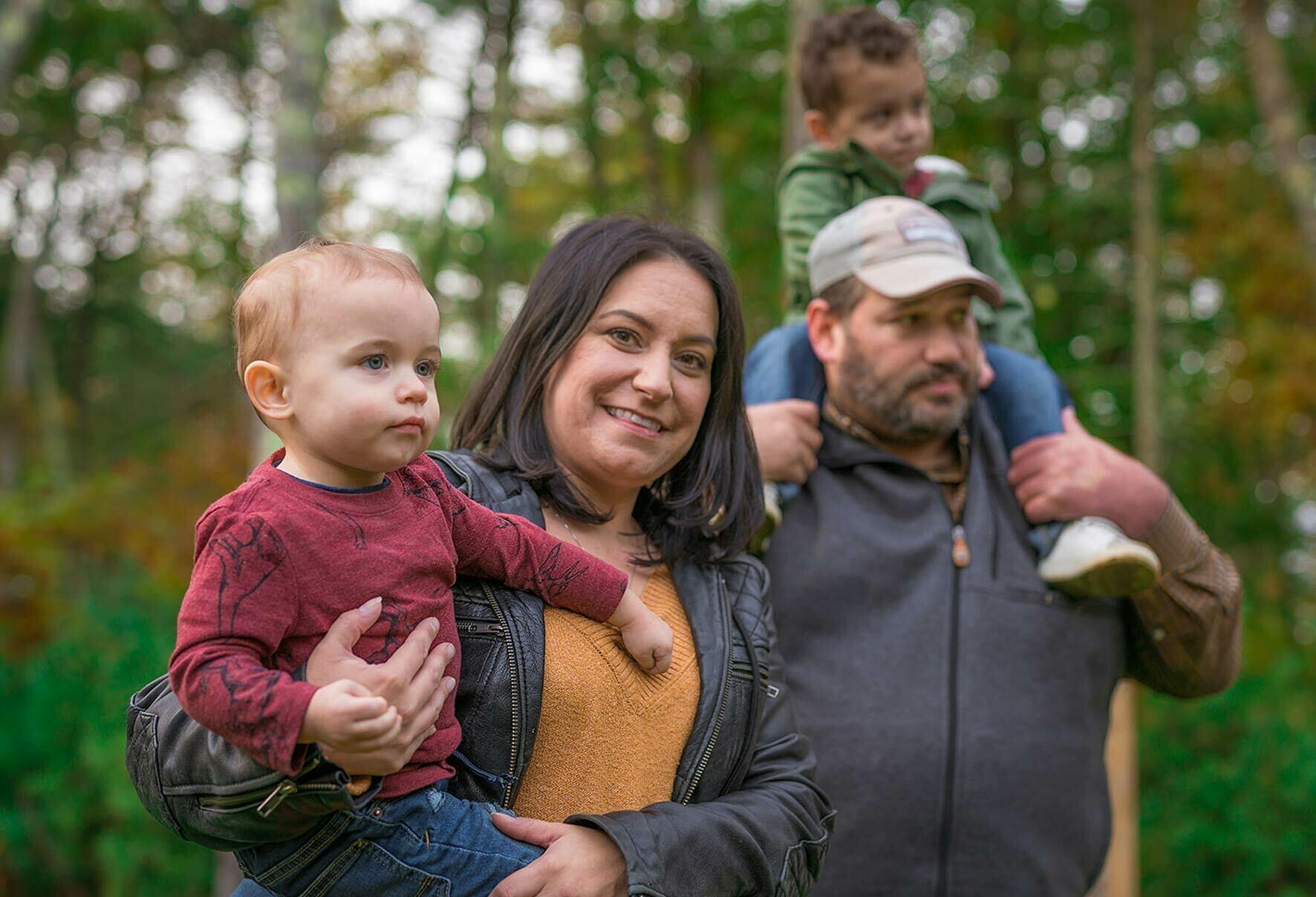
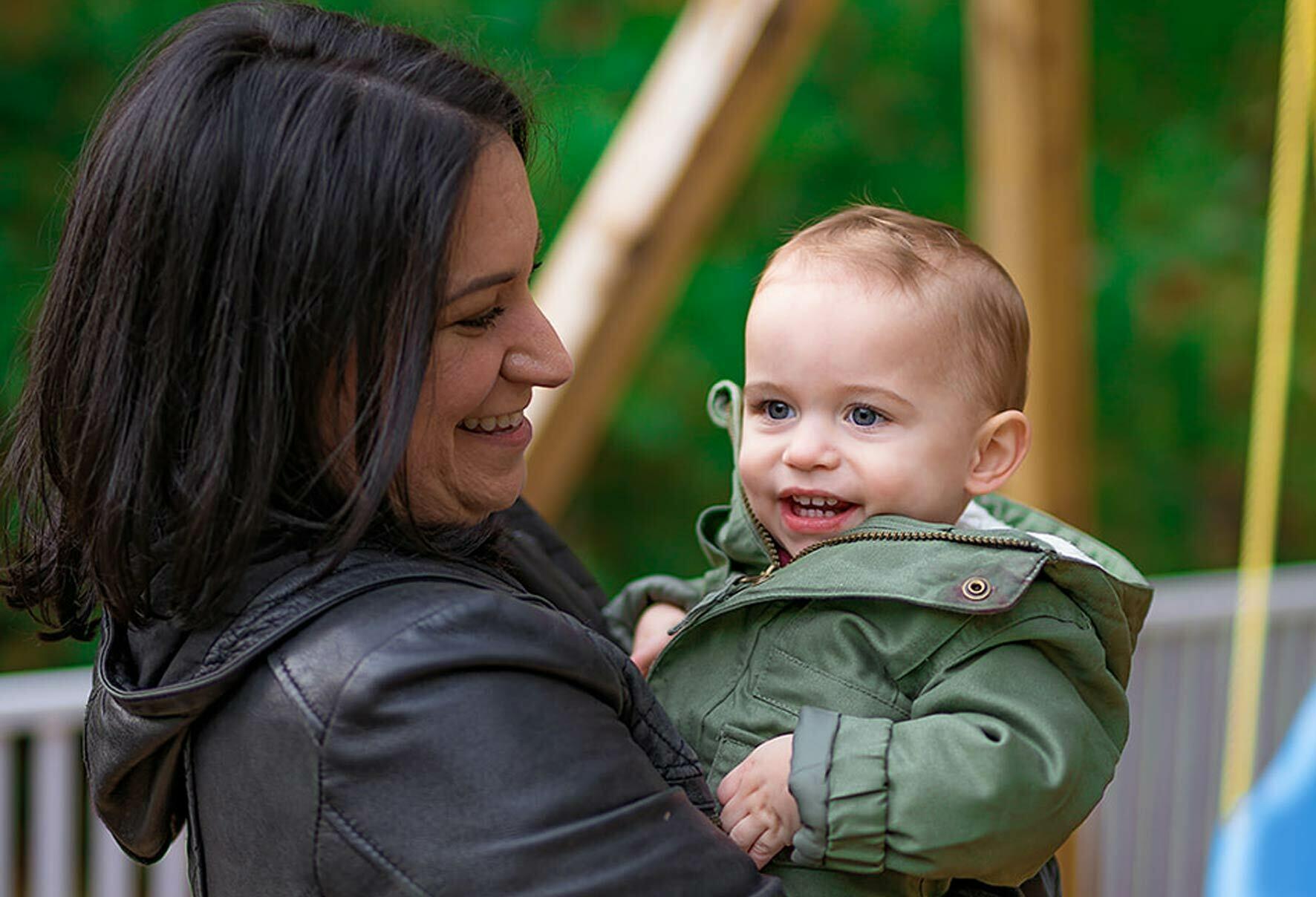
Stephanie’s greatest challenge has been facing the unknown. “I’ve always been in control of my entire life. That’s been my thing. But I literally don’t have control over anything anymore.” She explains, “There is no longer that hope that whatever is going on could be fixed by a pill, surgery, or simply changing his diet. The control you thought you once had over anything in life completely disappears. The life you once had and planned for you and your family is no longer. Then the worst part hits you like a ton of bricks—you realize you will outlive your child. You will never be the same person you were before you stepped foot into the hospital that day of diagnosis.” Stephanie has had no choice but to start expressing her feelings. “I found out the hard way. Every time I’m alone, I’ll just start crying. I really haven’t been focusing on self-care or dealing with it all. I’m realizing I need to feel it all.”
While recognizing the value in letting go of total control, Stephanie is learning from experience that unwanted surprises may produce blessings. On the same day of giving birth to Gio, Stephanie found out she had lost her job. The added pressure produced an extremely intense moment in her life—the simultaneity of beginnings and endings. But soon after, she moved to contracted work, which gave her more flexibility to tend to her children’s extensive needs. “It’s making me learn that it’s okay to not have control, and things that I didn’t expect or want to happen are sometimes a good thing. The unexpected isn’t always bad.”
The situation has helped develop a new sense of empathy and understanding in the family, bolstered by the new friendships and valuable connections made with people who are also affected by Duchenne. With support from the Jett Foundation, Stephanie was connected with other DMD families, which in part, inspired her to start her own foundation, Gio’s Journey. “I want the foundation to progress as we see what life actually looks like for Gio as he gets older. Right now the goal and the mission is to try to help fund other nonprofits…to help give back to the people who have already helped us.”
The platform gives Stephanie an opportunity to publicly share what she doesn’t always get to express, even to her own family. James has found that he often learns more details about Stephanie’s experience on Gio’s Journey than from what naturally comes up in conversation: “Reading her telling of Gio’s story through her eyes is great for me to see exactly what she’s going through on a daily basis.”
James and Stephanie are already underway planning to celebrate Gio with a benefit concert called Gio’s Jamboree. The family will open up their yard in the coming year to all their friends, family, neighborhood, and community affected by Duchenne. “We love event planning,” exclaims Stephanie with joy. James has played the drums in bands for years and formed plenty of friendships in local groups. This event will give him an opportunity to share his creative passion while raising awareness about muscular dystrophy and raising funds to help affected people. James reflects on the honesty of the intended impact: “We want our story to be told, and we want it to be uplifting but also real. We are a happy family, but we’ve gone through a lot to get to this point. It’s not all fun and games, and it’s not all miserable. We have a lot of good times, and we have a lot of bad times.”
Stephanie imagines what new possibilities could materialize as she and her family continue to share Gio’s journey. She muses how Gio might find a new interest and how they could get other kids involved. As she lets go, she embraces the expansiveness of the unfolding mystery of life. Stephanie picks Gio up from the wagon and lifts him into the air. A big smile erupts across Gio’s face, happy to be held and celebrated. With Jameson piggy-backing on his shoulders, James witnesses the act of unconditional love, inspired with the look of a proud father, as the journey continues.
“It’s making me learn that it’s okay to not have control, and things that I didn’t expect or want to happen are sometimes a good thing. The unexpected isn’t always bad.”
Henry has begun to take steroids, in an attempt to preserve his muscles. Diana’s feelings are mixed about this: “You just got diagnosed with this shitty thing, and now we’re gonna give you a drug with a bunch of shitty side-effects.” However, she feels grateful for any kind of medicine that can help. She is eager to consider new medical trials. “We’re open to anything. All treatments are on the table.”
For now, Henry is happiest in the midday sunshine at a local park where he and Lucy find hours of fun playing on the jungle-gym and in the sandbox. Henry loves to use the toy dump trucks to load and unload sand, and smooth out new roads for them to drive on. He loves to run too. In the distance, he spots the familiar cones and balls of a local soccer camp.
Jubilantly, he goes towards the bouncing, black-and-white balls, giggling aloud. “Henry, we’re not signed up for this camp,” says Diana, bounding after him. She senses the immediate sadness this realization brings. “But don’t worry. We’ll sign up next session.” Henry accepts this and is soon back to smiling and running along the river path.
Diana remains grateful to get precious moments like this, amidst the uncertainty of the future, and right now, she doesn’t want to miss a beat.
